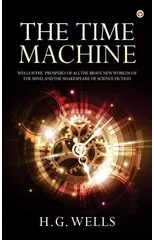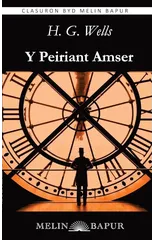The First Men in the Moon
A Critical Text of the 1901 London First Edition, with an Introduction and Appendices
(Author) H.G. WellsThe First Men in the Moon is the last in a series of “scientific romances” begun by Wells with The Time Machine. In the opinion of many, it is also the last in a series of pessimistic and anti-utopian novels before Wells took up the tone of an optimistic and utopian social prophet with Anticipations. The present critical edition of First Men questions that opinion. The lunar utopia described is far from a satire on the industrial order as many critics claim, but in historical context is instead related to the international scientific management movement, stemming from the Saint-Simonian school of socialism. This critical edition shows how First Men consciously builds on the whole literary tradition of moon voyages.
H.G. Wells
H.G. Wells was a prolific English writer best known for his science fiction novels. His most notable works include "The War of the Worlds," "The Time Machine," and "The Invisible Man." Wells' writing style was characterized by his imaginative storytelling, social commentary, and exploration of scientific concepts. He is often credited with popularizing the science fiction genre and influencing future writers in the field. "The War of the Worlds" remains his most famous work, depicting a Martian invasion of Earth and exploring themes of imperialism and the resilience of humanity. Wells' contributions to literature have had a lasting impact on the genre of science fiction and continue to be celebrated to this day.





